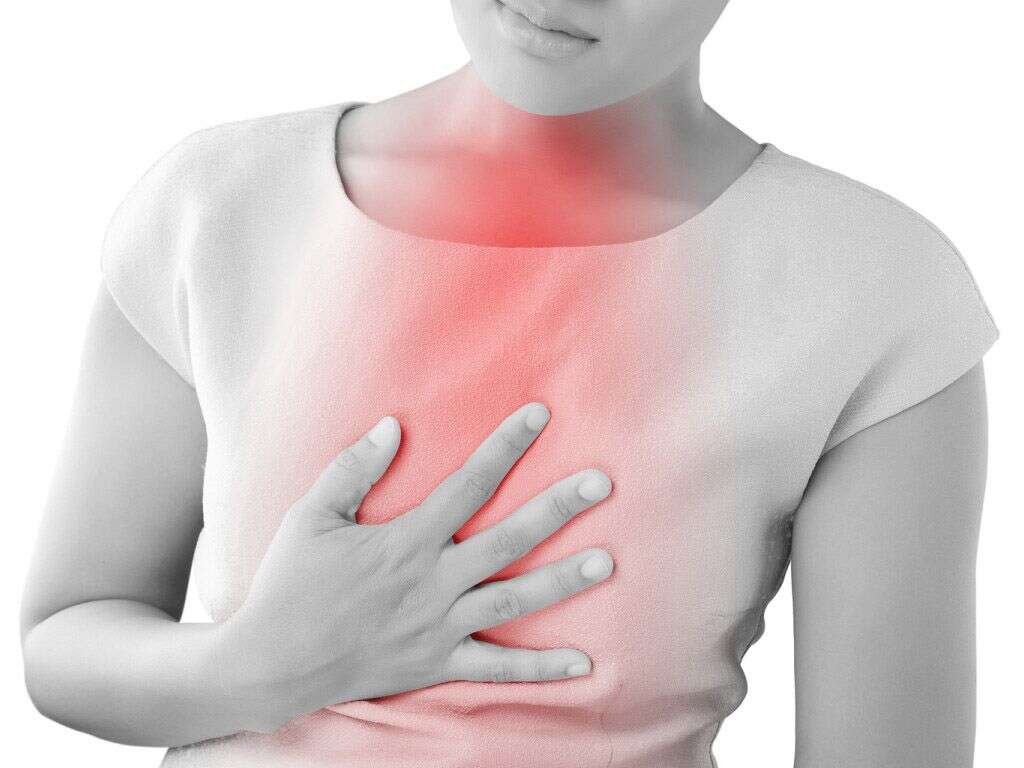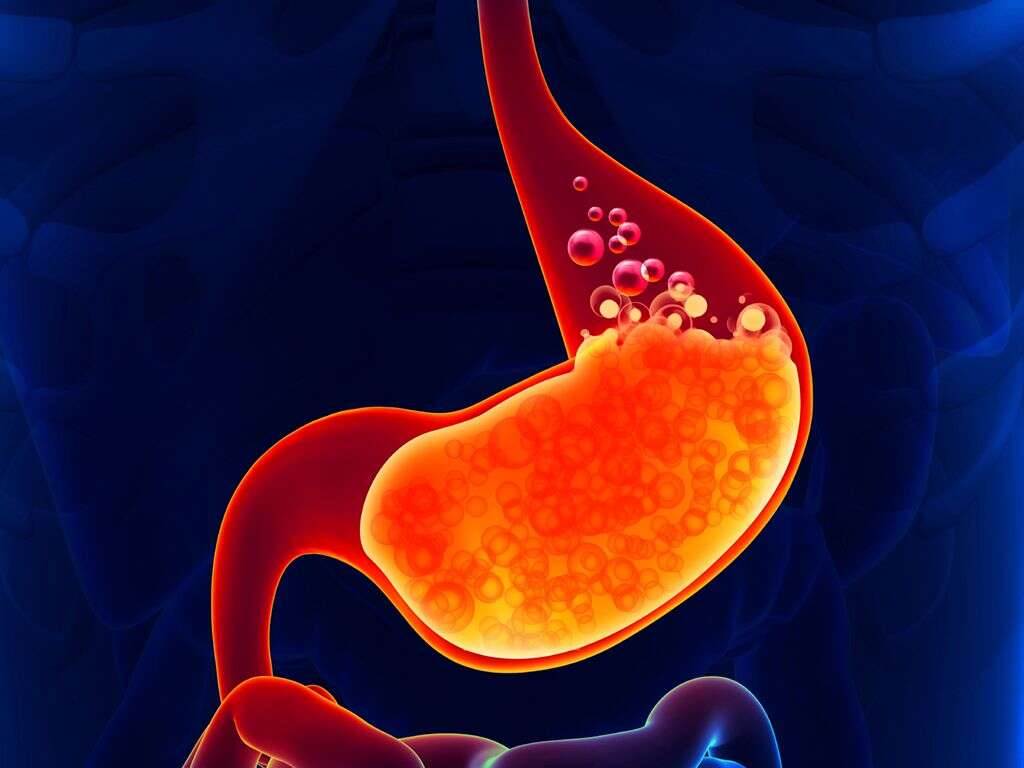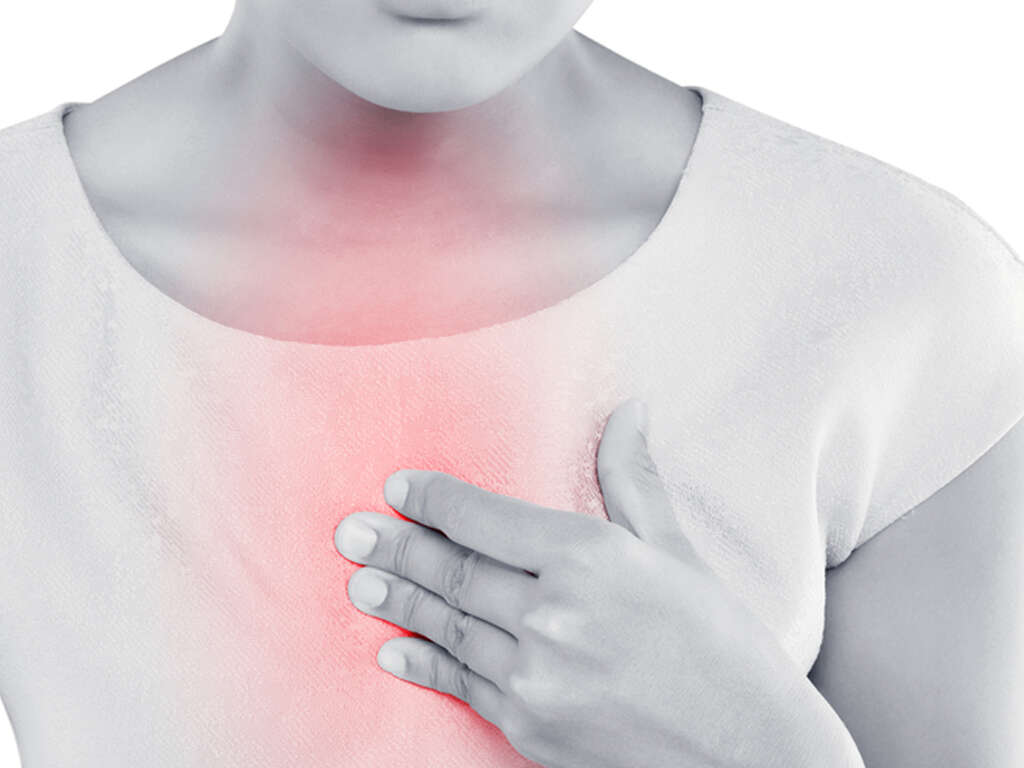10 Esophagitis Symptoms
Esophagitis is a condition where there is inflammation of the lining of the esophagus. The esophagus is the tube that connects the pharynx to the stomach. It is composed of a mucosal lining, longitudinal fibers, and circular smooth muscle fibers. Its function is to allow the passage of foods and liquids to the stomach through a series of wave-like movements or peristalsis.
There are several types of esophagitis. Gastroesophageal reflux disease is the most common cause of reflux esophagitis. In this disease, the gastric contents (i.e. acid) that are persistently regurgitated into the esophagus cause inflammation and erosion of esophageal mucosa. Several conditions (i.e. pregnancy) and lifestyle factors (i.e. medications, alcohol consumption) may increase the risk for this type of esophagitis. Conversely, esophagitis can also be caused by fungal and viral infections (i.e. Candida species). Infectious esophagitis is most commonly seen among patients with a compromised immune system (i.e. patients with AIDS). Furthermore, esophagitis can also be associated with pharmacologic therapies that include antibiotics (i.e. tetracycline), medications for osteoporosis (i.e. alendronate), potassium, nonsteroidal anti-inflammatory drugs (i.e. ibuprofen), and quinidine. Other etiologies of esophagitis include systemic illnesses (i.e. eosinophilic esophagitis), radiation therapy for chest tumors, and chemoradiation.
Although some cases of esophagitis can be asymptomatic, it can also cause various symptoms.
Symptom #1: Heartburn
Heartburn occurs when an individual has a burning sensation that is felt in the center of the chest. This uncomfortable sensation may even radiate to the neck or arm. Often, heartburn is worse after a meal, in the evening, or when lying down.
Heartburn is due to gastric acid regurgitation where there is backflow into the esophagus. Some may mistake the sensation as a symptom of a heart attack as they can be very similar. Cardiac disease should always be considered as a differential diagnosis in those with chest pain as it can be difficult to distinguish between acid reflux and cardiac-related chest pain. Seek immediate medical attention if you experience severe chest pain, especially if accompanied by pain in the arm or jaw and difficulty breathing.
Symptom #2: Dysphagia
Dysphagia is a medical term that refers to difficulty swallowing or disruption in the swallowing process. This can include difficulty of passage of solids or liquids from the mouth to the stomach. It is different from odynophagia, which describes pain during swallowing. Among the different types of esophagitis, infectious fungal esophagitis (Candida species) is a common cause of both dysphagia and odynophagia. Patients with dysphagia have a higher risk of pulmonary aspiration and aspiration pneumonia. It can also result in malnutrition, renal failure, and dehydration.
Since some patients with dysphagia can be unaware of this symptom, clues include choking, coughing, difficulty initiating the swallowing process, inability to control food or saliva in the mouth, weight loss, and frequent pneumonia. Besides esophagitis, other causes of dysphagia include esophageal motility disorders, structural disorders (i.e. esophageal webs, Zenker diverticulum) esophageal cancer, various neurological disorders (i.e. strokes, Alzheimer disease), and more.
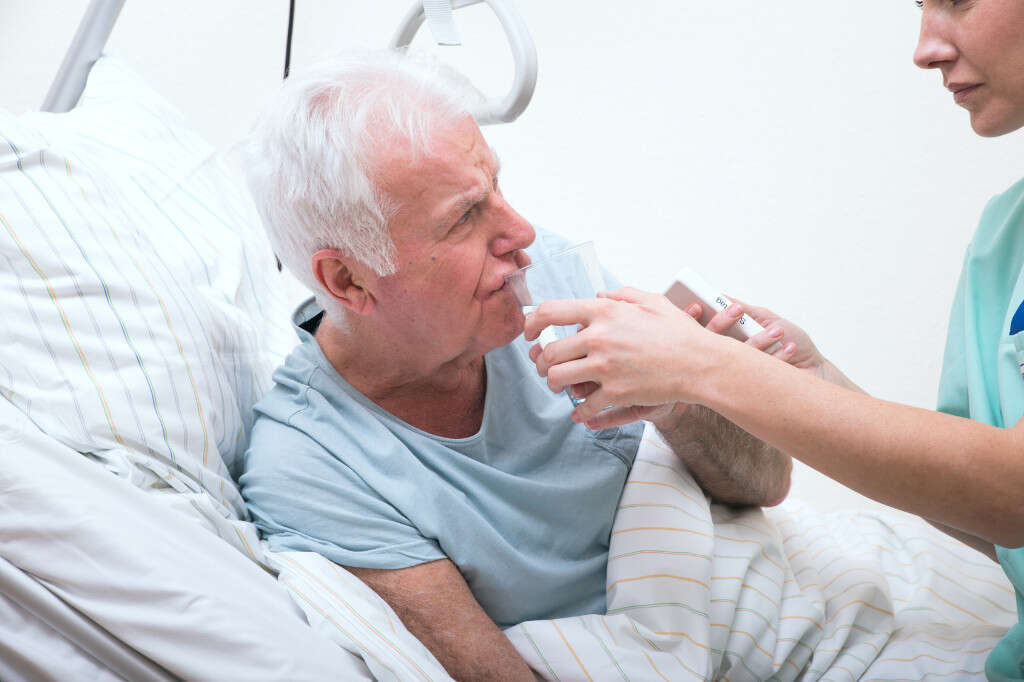
Symptom #3: Nausea
Nausea refers to an unpleasant and uncomfortable sensation where there is an urge to vomit. Although it does not cause any pain, it can be debilitating as it places discomfort on the abdomen, throat, and chest.
Some causes of nausea include esophagitis, motion sickness, migraine, dizziness, gastroenteritis, food poisoning, and more. It can be managed using antiemetics such as promethazine, ondansetron, and metoclopramide. Remember to always consult your doctor before taking any medication for these symptoms.
Symptom #4: Vomiting
Vomiting or emesis occurs when there is an involuntary and forceful expulsion of the stomach contents from the mouth and/or nose. It is a common and nonspecific symptom often seen in gastritis, food poisoning, brain tumors, motion sickness, and pregnancy.
Nausea may sometimes precede vomiting. Treatment includes the use of antiemetics. In severe cases, hospitalization and administration of intravenous fluids may be necessary. Vomiting should not be confused with regurgitation.

Symptom #5: Abdominal Pain
Abdominal pain is a symptom found in both serious and nonserious medical issues. It is a common and nonspecific symptom often seen in gastroenteritis, irritable bowel syndrome, food poisoning, and many more.
Anatomically, the abdomen can be divided into nine regions. One of them is the epigastric region. It is the upper central region of the abdomen, located immediately over the stomach. The pain that patients experience in esophagitis is usually located in this region, but it can also radiate and become retrosternal (behind the breastbone or sternum). Epigastric pain is a common symptom in reflux esophagitis and infectious esophagitis.
Symptom #6: Cough
A cough is a sudden and potentially repetitive protective reflex that functions to clear the airways from fluids, foreign particles, irritants, and microbes. In some cases, patients can develop a chronic cough (i.e. a cough that does not improve after 8 weeks). Postnasal drip, asthma and gastroesophageal reflux disease are common causes of this symptom. As mentioned above, gastroesophageal reflux disease (GERD) is one of the most common causes of esophagitis and plays an important role in the etiology of chronic cough.
According to different theories, GERD causes chronic cough by either microaspiration of droplets of reflux content (reflux theory), or by irritating the esophagus, thereby stimulating a common esophagobronchial reflex (due to common embryologic origin) that causes cough (reflex theory). Other causes of esophagitis can also exhibit chronic cough as a symptom.

Symptom #7: Water Brash
Water brash or acid brash is a symptom of gastroesophageal reflux disease and esophagitis. The regurgitation of acid from the stomach into the esophagus or throat can cause increased salivation. When the acid mixes with the saliva, this is known as water brash.
Patients often describe it as having a sour taste or bile-like taste. Patients who are unaware can feel alarmed at the sudden distinct taste in the back of their throat. It occurs most commonly when the patient is bending over or lying flat.
Symptom #8: Regurgitation or Reflux
Regurgitation or reflux refers to the backflow of stomach contents into the esophagus, even reaching the throat. This can occur when there is a dysfunction of the gastroesophageal junction/sphincter. It is a symptom seen in esophagitis and gastroesophageal reflux disease.
The risk factors include obesity, hiatal hernia, smoking, pregnancy, and the use of certain medications. It can result in complications such as esophageal stricture and Barrett’s esophagus.
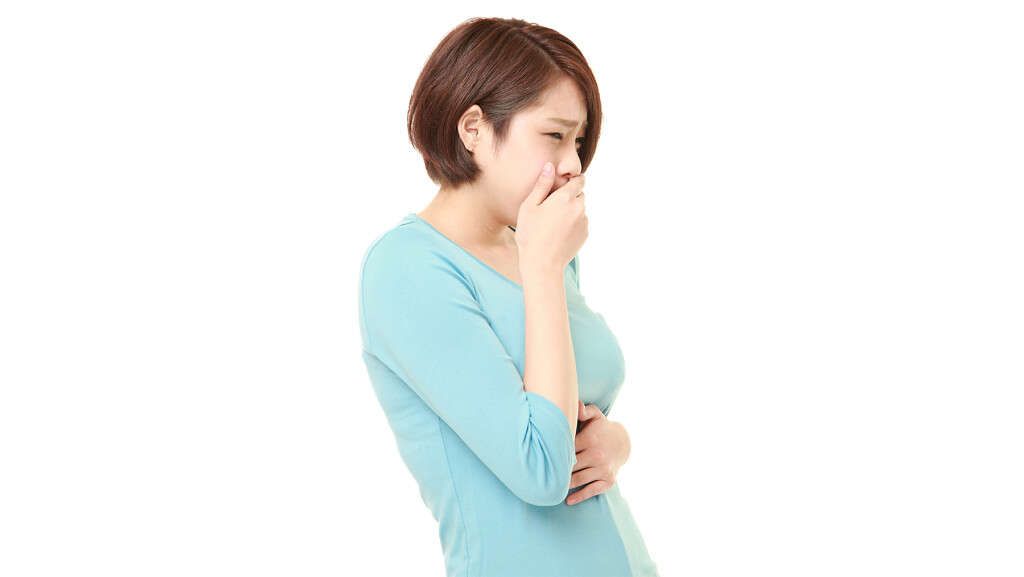
Symptom #9: Abdominal Bloating and Fullness
Abdominal bloating is a common and nonspecific symptom often seen in various disorders. It can happen to individuals of all ages and is usually associated with gastrointestinal issues. Those with abdominal bloating usually describe it as having a tight and full abdomen. Relief can be sought through the use of different medications and dietary changes. In some cases, bloating can result in breathlessness and pain.
Some causes of abdominal bloating include overeating, premenstrual syndrome, esophagitis, lactose intolerance, food allergy, celiac disease, splenic-flexure syndrome, constipation, and diverticulosis.
Symptom #10: Dyspepsia
Dyspepsia or indigestion can cause symptoms of heartburn, nausea, upper abdominal fullness, belching, abdominal pain, and early satiety. Dyspepsia is a common symptom seen among those with gastroesophageal reflux disease, gastritis, peptic ulcer disease, and esophagitis.
Dyspepsia can be managed with different medications (i.e. protein pump inhibitors).




